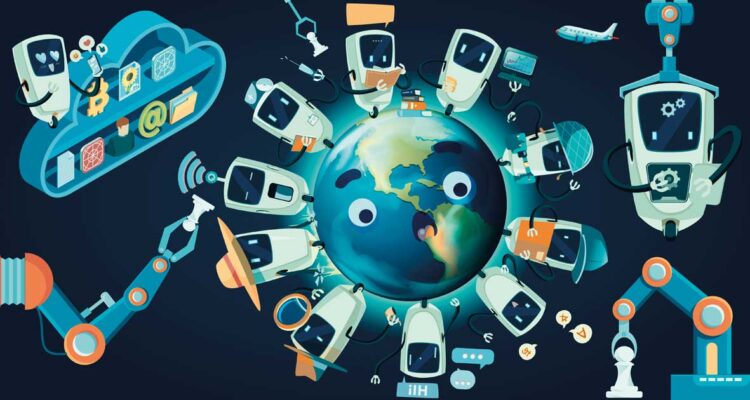According to McKinsey’s assessment on the influence of AI on the global economy,
AI is predicted to progressively add 16 percent (about US$13 trillion) to global economic output by 2030.
According to a McKinsey analysis based on simulation models of AI’s influence at the national, sector, organizational, and worker levels, AI will contribute annually to efficiency growth of roughly 1.2 percent between 2020 and 2030.
The report focuses on AI adoption across five broad categories of AI technology, including NLP, RPA, and advanced machine learning, among others. It was based on a survey of approximately 3,000 businesses and economic data from a variety of sources, encompassing the World Bank, the United Nations, and the World Economic Forum.
Leading businesses and government agencies are prioritizing AI and machine learning as the global economy grows exponentially due to increased effectiveness and productivity. Even though the world’s top economies announced AI efforts in 2017 and 2018, most countries have only begun to consider their AI future.
Innovation, labor automation, and new competition are all factors that influence a country’s AI-driven efficiency. Miniaturized scale factors, such as the rate of AI adoption, and full-scale factors, such as a country’s global connection or labor-market structure, also have an impact.
The rate of AI growth will not be linear as it accelerates. By 2030, the commitment to growth must be several times greater. The adoption of AI in an S-curve pattern is actually a modest start. This is due to the high costs and investments required to implement these developments.
Nonetheless, increased competitiveness and innovation-led improvements in corresponding capacities necessitate acceleration.
The globally optimized value chain will give a method for digital technology adoption to become cheaper, faster, and easier after a given level of AI acceptance. More integration across products and services will be significantly easier to achieve after that. Clearly, this will create an impact on the emergence of independent worldwide platforms for the interchange of goods and services.
Like this post? Checkout our Featured Section





No Comments